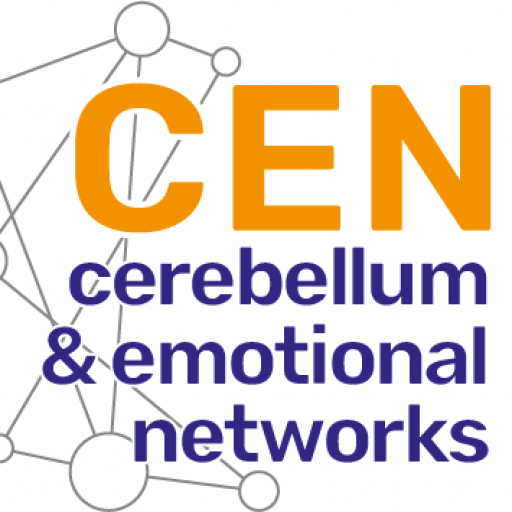EARLY STAGE RESEARCHER – 15 MONTHS POSITION
This job offer is currently not accepting more applications.
Current candidates should expect interviews to occur the week of the 18th of March.
JOB DESCRIPTION
CEN is delighted to announce a 15-month full-time position for a talented and enthusiastic early stage researcher (pre-PhD) at The Defense Circuits Lab (Würzburg. Germany)
The project investigates neural circuits and computations that mediate cerebellar signals during emotional states in mouse models. Candidates with a neurobiological background and a strong interest in systems neuroscience approaches and how complex states are controlled by neural circuits are encouraged to apply.
Successful applicants will be offered a 15-month salary including mobility allowance and family allowance (if applicable) in line with the Marie Sklodowska-Curie Horizon 2020 requirements for Early Stage Researchers.
Deadline 7th March 2024 (23:55 CET)
Standard responsibilities
- Run and analyse experiments to investigate neural circuits and computations that mediate cerebellar signals during emotional states in mouse models.
- Keep accurate records of experiments, including procedures on research animals.
- Regular reporting of research data.
- Preparing study reports and presenting key findings to internal and external researchers and presenting their work at national/international conferences, in the form of talks or poster presentations.
- Participate in training and development activities.
- Work efficiently within an international and multidisciplinary team.
Additional responsibilities
- Conduct short-term (1-2 months) research abroad.
- Interact remotely, and in-person when possible, with other colleagues within CEN.
- Participation in outreach activities including, but not limited to, YouTube videos, social media updates, participation in public events and campaigns, as well as dissemination to popular press.
- The recruited researcher must be working exclusively for the project.
Structure of the programme
The candidate will join an outstanding team of researchers with projects spanning cellular, circuit, computational and neuroimaging approaches to study cerebellar contributions to emotional behaviors in health and disease, training a new generation of scientists with expert knowledge in both basic and clinical research. In addition to using cutting edge techniques enabling discovery science, you will benefit from close network interactions across the consortium, including joint meetings and laboratory internships. You will also get first-hand experience of private biotech companies, NGOs, rehabilitation clinics and national and international patient self-help groups to broaden your horizons and provide you with an unrivalled opportunity to link academic research with commercial and not-for-profit organisations.
ELIGIBILITY CRITERIA
Innovative Training Networks (ITN)are limited to researchers (Early Stage Researchers; ESRs) who, at the time of recruitment by the host organization, are:
- in the first four years (full-time equivalent research experience) of their research careers and have not been awarded a doctoral degree.
- Must not have resided or carried out your main activity (work, studies, etc.) in the country of your host organisation for more than 12 months in the 3 years immediately prior to recruitment. Compulsory national service, short stays such as holidays and procedures for obtaining refugee status under the Geneva Convention are not counted.
PERSON SPECIFICATION
1: Relevant Qualifications
Essential
Relevant biological or biomedical science-related discipline or equivalent professional experience.
2: Relevant Experience, Skills and Knowledge
Essential
- Proven experience with the state-of-the-art neuroscience techniques in rodents (in vivo calcium imaging, electrophysiology or optogenetics).
- Knowledge of research in neurobiology and a strong interest in systems neuroscience approaches.
- Experience in managing animals undergoing regulated procedures.
- Surgical procedures and behavioural assays in rodents.
- Basic wet lab and immunohistochemistry skills including microscopy.
- Planning and organisational skills.
Desirable
- Good data analysis skills.
- Programming skills (Matlab or Python).
3: Communication and Interpersonal Skills
Essential
- Fluent in spoken and written English.
- Ability to communicate complex information clearly.
- Willingness to work independently and co-operatively in a team.
- Ability to work effectively in a multidisciplinary and multicultural team.
Desirable
- German language skills.
- Able to interact with MSc and undergraduate research project students and help with their day-to-day lab supervision.
- Ability to prepare first-draft scientific manuscripts.
4: Additional criteria
Essential
- Proactive approach to research and to problem-solving.
- Able to use initiative.
- Strong motivation to develop and learn new techniques.
- Ability to keep good records of experimental data.
- Good IT/computer skills
Desirable
- Interest in laboratory animal welfare.
- Ambition to progress in a scientific career.
HOW TO APPLY
Please, complete this application form and send it to sara.alvira@bristol.ac.uk by the 7th March (23:55 CET)
Interviews are expected to be held around the 20th-22nd of March.
CONTACTS
For any questions related to the research project, please contact tovote_p@ukw.de
For questions related to the application process, please contact sara.alvira@bristol.ac.uk
